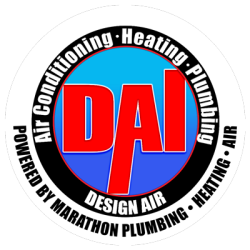
A blown fuse in your HVAC system could be good or bad news. Before you can understand why it’s best that you grasp the general purpose of fuses in your HVAC system.
HVAC Fuses 101
In motors and electric circuits, flowing currents of electricity can quickly cause damage if the current is not interrupted. To prevent this from occurring, fuses are set at strategic places within wiring systems to break the electrical current if needed. Fuses are designed to burn out to severe the current if an electrical abnormality occurs.
In HVAC systems, fuses are used in compressors, evaporator coils, motors, and wiring configurations. Fuses guard these components against overheating. They also serve a vital role in protecting other HVAC parts from overloading. Some HVAC components are designed to complement the function of others and are connected. Hence, if one component malfunctions, several other parts could be damaged if the system is not shut down immediately. Fuses help in this regard.
The number printed on a fuse correlates to the number of amps it allows to flow through a part or circuit. If the amount ever exceeds the number, the fuse will break the electrical circuit and blow.
So Why Is Your HVAC System Blowing Fuses?
A component that is going bad, an electric circuit overload, or a shortage in wiring can cause a fuse to blow. That is why if your AC service repairer is telling you the opening statement it could be good or bad news. The worst-case scenario is that another component is either dead or on its last leg. A regular schedule of HVAC maintenance can lengthen the life of HVAC components and prevent system shutdowns. The better news would be that the fuse was old and simply needs to be replaced.
Modern HVAC equipment requires knowledgeable professionals and regular maintenance. Design Air A/C & Heating is a full-service air conditioning repair service.
Design Air A/C & Heating
951-379-3362

